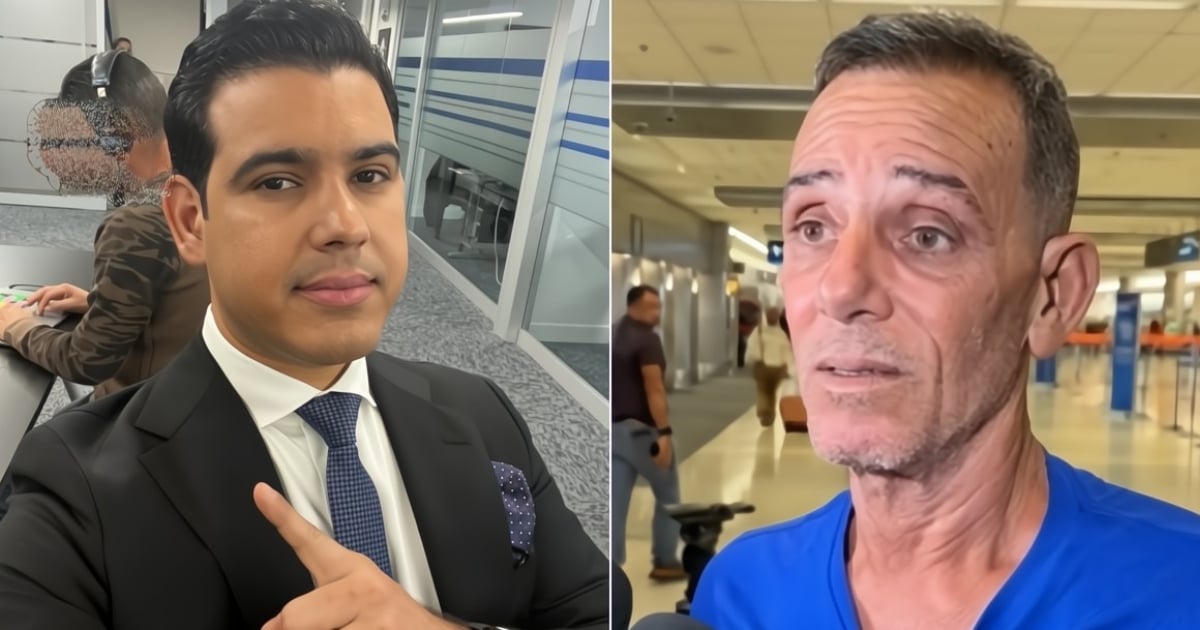Javier Díaz, a journalist, is urging Cuban exiles in the United States not to be frightened by emails from the U.S. Citizenship and Immigration Services (USCIS). These emails reportedly notify recipients that their humanitarian parole has been revoked and demand that they leave the country. "Don't let an email scare you into leaving!" Díaz emphasized on social media, referencing the situation of independent journalist and former Cuban political prisoner, Lázaro Yuri Valle Roca, who is facing possible deportation after receiving such a notification.
"I spoke with Lázaro after he arrived in Miami, even though he was unwell. Remember, these are automated emails, sent by a computer system. If you're Cuban, apply for residency a year and a day after arriving, and don't go back to a country without freedom," Díaz advised.
The plight of Valle Roca has stirred significant concern within the Cuban exile community. Known for his staunch opposition to the regime, Valle Roca was imprisoned for nearly three years and left Cuba in June 2024 with the aid of his wife, Eralidis Frómeta, who helped secure a humanitarian permit from the U.S. Embassy in Havana. Currently, Valle Roca faces uncertainty after the cancellation of humanitarian parole programs for citizens of Cuba, Haiti, Nicaragua, and Venezuela, a decision announced by the Department of Homeland Security (DHS) on March 25, as part of Executive Order 14165 signed by President Donald Trump.
Expressing his distress on Facebook, Valle Roca shared his fears about deportation. "Life can be so cruel. They want to send us back to death, but I have faith in God (...). If they send me back to my beloved Homeland, I'll enter as always shouting: Down with the Cuban dictatorship!" he wrote.
The official notice Valle Roca received specifies that parole beneficiaries must depart the U.S. before their immigration status expires, or they risk expedited deportation. Additionally, this revocation also means the cancellation of work permits that were granted under the parole program.
The DHS has warned that those who fail to leave timely might face "adverse immigration consequences" and could accumulate unlawful presence unless they establish a legal basis to remain in the U.S. This measure has sparked alarm among activists and human rights defenders, who highlight the real danger journalists and political dissidents face if returned to countries where they are persecuted for their beliefs.
Javier Díaz, meanwhile, has called for calm and informed action: "I hope the United States can truly resolve this internal chaos that the government has created in terms of immigration."
Key Concerns about Cuban Exiles and Immigration Policies
What advice does Javier Díaz give to Cuban exiles regarding USCIS emails?
Javier Díaz advises Cuban exiles not to be intimidated by automated emails from USCIS and to apply for residency after a year and a day in the U.S., rather than returning to Cuba.
Why is Lázaro Yuri Valle Roca facing possible deportation?
Lázaro Yuri Valle Roca faces potential deportation due to receiving an automated email from USCIS indicating the revocation of his humanitarian parole status.
What could happen to parole beneficiaries who do not leave the U.S. in time?
Beneficiaries who do not leave the U.S. before their parole expires could face expedited deportation proceedings and potentially accumulate unlawful presence if they lack a legal basis to remain.
